#sdg7
Text
ISEID Program
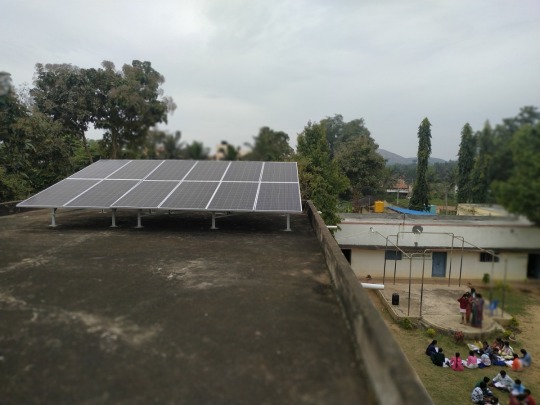
View On WordPress
#corporate social responsibility bangalore#Corporate Social Responsibility India#csr projects bangalore#csr projects india#CSR Projects Karnataka#sdg13#sdg7#Solar power#trinity care foundation
3 notes
·
View notes
Text
Renewable energy capacity has more than doubled in small island developing states between 2014 and 2022.

Climate change, combined with recent geopolitical developments, has sent shockwaves throughout the global economy, magnifying concerns around energy security, food security and weather-related disasters. Small island developing states (SIDS), which are amongst the lowest emitters worldwide, are most at risk from these potential threats. However, they are increasingly employing ambitious plans to deploy renewable energy in order to secure its multiple benefits.
This technical paper presents a quantification of SIDS’ renewable energy targets, both in their national energy plans and in their NDCs, comparing commitments made within their national policies and plans with those that extend to the Paris Agreement framework. The conditionality of commitments is explored, where applicable highlighting the urgent need to mobilize international support to SIDS in the form of financing, technology transfer and technical assistance, to help meet their renewable energy commitments.
Renewable energy targets in small island developing states
#renewable resources#renewable energy#small nations#small territories#least developed states#landlocked developing countries#energy transition#sustainable energy#sdg7 targets#SDG7#National energy plans#small island developing developing states#small islands
0 notes
Text
Help us secure a cleaner, healthier, and prosperous future for all.
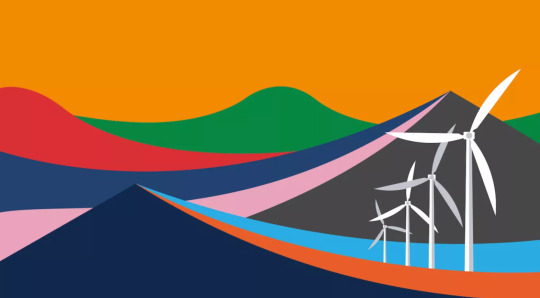
But we need to keep pushing further—and the fossil fuel industry and its friends in power are fighting hard to undermine our progress.
Contribute to cut emissions 42 percent by 2030.
Giving Our Planet a Fighting Chance (PDF).

#emissions reduction#clean energy sources#renewableenergy#renewable power#renewablefuture#renewable energy sources#sustainable energy#sdg7#fossil fuel industry#nrdc
0 notes
Text
Financing for Sustainable Development Report 2024 - Financing for development at a crossroads.
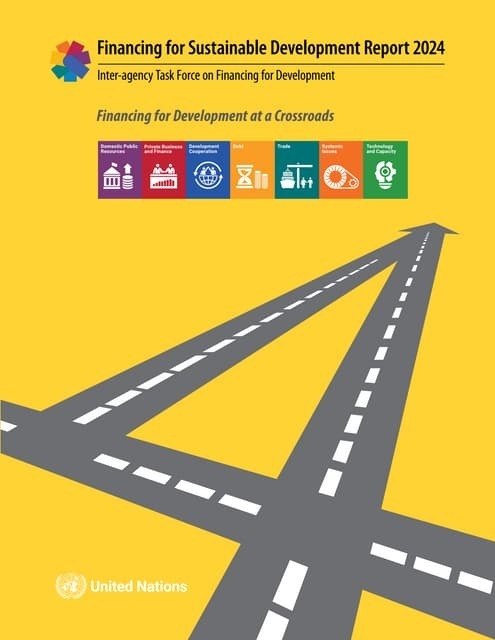
United Nations Department for Economic and Social Affairs
#united nations department of economic and social affairs#sustainable development goals#financing for development#agenda 2030#globalgoals#economic growth#sdgs#sdg1#sdg2#sdg3#sdg4#sdg5#sdg6#sdg7#sdg8#sdg9#sdg10#sdg11#sdg12#sdg13#sdg14#sdg15#sdg16#sdg17
0 notes
Text
Bringing Renewable Energy to Local Farmers.
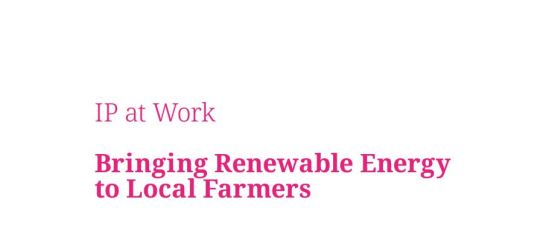
Eco-innovative farming solutions are vital to ensuring the
global reduction of greenhouse gas (GHG) emissions related to
agriculture. Biodôme du Maroc, a small, fast-growing Moroccan
company, provides local farmers with a technology that gives
them access to renewable energy for on-farm use.
Founded in 2013 by Dr. Fatima Zahra Beraich, Biodôme du Maroc
is the first Moroccan company to specialize in the recovery of
organic waste through natural treatment and environmentally
friendly processes. This is to enable farmers in rural areas to
produce biogas and fertilizer.

For the environment, biogas helps to reduce greenhouse gas
emissions from abandoned organic waste and minimizes the risk
of polluting waterways. This “clean” method of energy production
also reduces reliance on wood as a fuel source.
Biodôme du Maroc offers a range of small-scale agricultural
anaerobic digesters. These digesters use a simple and innovative
system to produce biogas and recover organic matter. Inside
underground concrete enclosures, farmers can deposit different
kinds of organic waste, such as household, plant and animal waste,
which is fermented in a biological accelerator. In this process, gas
is produced through methanization or anaerobic bio-digestion,
where bacteria naturally break down organic matter within weeks.

By providing a technology that produces gas from organic waste, Biodôme du Maroc gives local farmers access to renewable energy for agricultural production.
Dr. Beraich currently holds six patents covering innovations that
improve the efficiency and performance of Biodômeʼs bio-digesters.
“The process of securing a patent means that our technology
is evaluated by experts and allows us to understand just how
different our inventions are from other competing technologies.
This allows us to protect the inventive characteristics of our
outputs,” explains Dr. Beraich. “With these patents in hand, we
hope to be able to license our more recent patented innovations.”
The support of the Moroccan Association for Research and
Development (R&D Maroc) – part of the network of Technology and
Innovation Support Centers (TISCs) in Morocco – has played a critical role in the success of Biodôme du Maroc. “I learned about the TISC network at an outreach event at the University organized by the
Moroccan Industrial and Commercial Property Office,” Dr. Beraich
explains. R&D Maroc helped Dr. Beraich secure seed funding and also
ensured she had the help she needed to draft her patent applications, and license and access the technology she required to create and commercialize her bio-digesters. Biodôme is currently marketing its patent-protected bio-digesters in Morocco and across Africa.

#Eco-innovative farming solutions#worldipday#26 april#sdgs 12#sdg13#sdg11#sdg6#sdg7#ip and the sdgs#ip at work#sustainable agricultural#competing technologies#invention#patented technologies#patented innovation#Technology & Innovation#Innovation#r&d#Moroccan Industrial and Commercial Property Office#morrocco#bio-digesters#patent application#patent-protected
0 notes
Text
youtube
1 note
·
View note
Text
Opening plenary (SDG Action Weekend, Mobilization Day).
As the opening to SDG Action Weekend, the opening plenary of the Saturday proceedings will emphasize the urgency of this moment. Halfway to the 2030 Deadline, we are not halfway there –many goals remain off-track and global economic, geopolitical, and environmental headwinds threaten progress in other areas.
The 2030 Agenda is a promise, not a guarantee, and humanity is in the hotseat. In the face of these challenges, participants will be reminded by speakers that transformation, at scale, is possible. We have the right tools and capabilities but now we need everyone, individually and collectively, to channel these resources more efficiently to deliver on the SDGs. This session will feature a keynote speech from a former Head of State, providing a sober reality check of the moment and emphasizing the possibility for us to achieve our promise. To close, an empowering performance from Yemi Aladewill set an uplifting tone as stakeholders head into the programming of SDG Mobilization Day.
---
To maximize the SDG Summit's impact, the Secretary General is convening an SDG Action Weekend, which will generate opportunities for stakeholders, UN entities, and Member States to convene inside the United Nations Headquarters and set out specific commitments and contributions to drive SDG transformation between now and 2030.
The SDG Action Weekend will consist of the SDG Mobilization Day on Saturday, 16 September, and the SDG Acceleration Day on Sunday, 17 September at UNHQ in New York.
The SDG Mobilization Day (16 September) will create an opportunity for stakeholders from all sectors to convene inside the United Nations Headquarters and mobilize towards an ambitious SDG Summit and UN General Assembly High-Level Week.
The SDG Acceleration Day (17 September) will be centred around the UN High-Impact Initiatives
The SDG Summit on 18-19 September will mark the mid point of the SDGs. It must secure the breakthroughs and momentum needed to change course and achieve the SDGs by 2030. To maximize the Summit's impact, the Secretary General is convening an SDG Action Weekend, which will generate opportunities for stakeholders, UN entities, and Member States to convene inside the United Nations Headquarters and set out specific commitments and contributions to drive SDG transformation between now and 2030.
#sdg1#sdg2#sdg3#sdg4#sdg5#sdg6#sdg7#sdg8#sdg9#sdg10#sdg11#sdg12#sdg13#sdg14#sdg15#sdg16#sdg17#globalgoals#sustainable development goals#stakeholders#sdg action#opening plenary#plenary session
0 notes
Text
Roundtable 3 - For the well-being of the communities.

International Day of Cooperatives 2023 "Cooperatives: Partners for Accelerated Sustainable Development."

0 notes
Text
Progress towards the Sustainable Development Goals: Towards a Rescue Plan for People and Planet.

The present report on progress towards the Sustainable Development Goals is submitted in response to General Assembly resolution 70/1, Transforming Our World: the 2030 Agenda for Sustainable Development.
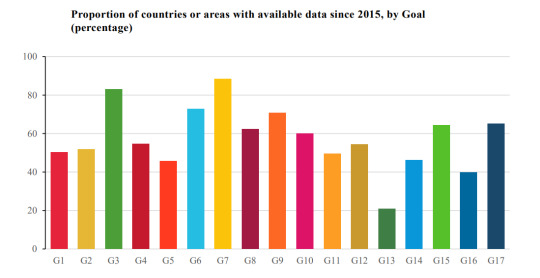
At the mid-way point towards 2030, this Special Edition report provides an update on progress made since 2015 against the global SDG indicator framework. It finds that many of the SDGs are moderately to severely off track and puts forward five major recommendations to rescue the Sustainable Development Goals and accelerate implementation between now and 2030, for Member State consideration in advance of the SDG Summit.
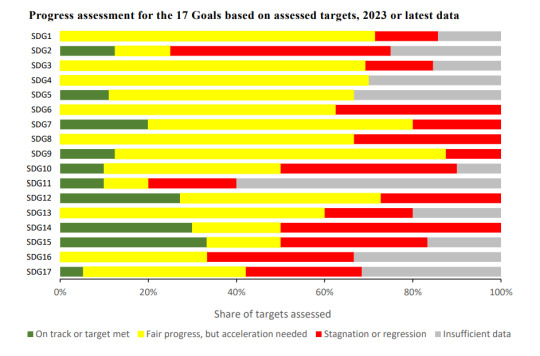
#2030 Agenda for Sustainable Development#Member states#SDGs#Global Goals#Agenda 2023#sdg1#sdg2#sdg3#sdg4#sdg5#sdg6#sdg7#sdg8#sdg9#sdg10#Sdg11#sdg12#sdg13#sdg14#sdg15#sdg16#sdg17
0 notes
Text
UN DESA Global Policy Dialogues to Turbocharge SDG Implementation - Session 1: Accelerating Clean Water and Energy for All: Exploring SDGs 6 and 7.
Halfway into the mandate of the 2030 Agenda for Sustainable Development, the world continues to face challenges including the socioeconomic effects of the pandemic, the climate crisis and global conflicts, that are together exposing and exacerbating global inequalities and setting back hard-earned development progress. Our collective aim of realizing the 17 Sustainable Development Goals (SDGs) by 2030 is at risk.
The UN DESA will host two Global Policy Dialogues in June (20 June and 22 June) to discuss ways to strengthen the interlinkages between the Goals under review and present the information in an interactive format for a wide audience.
Both events will feature speakers from United Nations leadership, Member States, the United Nations High-level Advisory Board on Economic and Social Affairs, and the Independent Group of Scientists preparing the Global Sustainable Development Report 2023. Each discussion will include ways to build and scale partnerships to reach our targets.
With these two dialogues, UN DESA hopes to enhance the preparedness of Member States and the United Nations system to respond to multi-dimensional, systemic risks in today's interconnected world. These dialogues are made possible by the United Nations Peace and Development Trust Fund;
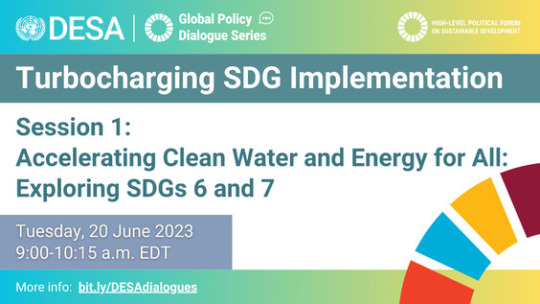
#Independent Group of Scientists#High-level Advisory Board on Economic and Social Affairs#leadership#Member States#Plenary sessions#SDG7#sdg6#Water for all#clean energy for all#United Nations Peace and Development Trust Fund#undesa
0 notes
Text
2nd session of the UN-Habitat Assembly - Day I.

The second session of the United Nations Habitat Assembly will be held from 5 to 9 June 2023 in Nairobi. Kenya. The theme of the session is "A sustainable urban future through inclusive and effective multilateralism: achieving the Sustainable Development Goals in times of global crises."
#un-habitat#habitats#agenda 2030#new urban agenda#human settlements#sustainable urban development#urban sustainability#sdg7#sdg6#sdg9#sdg11
0 notes
Text
Big Earth Data, Strengthening Potential of Digital Technologies for SDGs in Post-COVID World.
This side event will focus on the use of big earth data such as satellites, in-situ observations, and models for monitoring and evaluation of indicators at multiple scales. Data infrastructure, application cases, successful practices will be presented and discussed, new and emerging issues will be identified, with different concerns on SDG6, SDG7, SDG 11, and SDG17.
This side event will feature two co-moderator and 9 invited panelists, who will join the panel discussion both in person and online followed by an open discussion session among the invited speakers and the audience on how to build up the capacity for data acquisition, analysis and application, to bridge the gap between science and society.

0 notes
Text
Tracking SDG7: The Energy Progress Report 2023 & SDG7 Policy Briefs 2023 of SDG7 reports (HLPF 2023 Special Event).
The Tracking SDG7: The Energy Progress Report provides the most comprehensive look available at the world's progress towards global energy targets on access to electricity, clean cooking, renewable energy, and energy efficiency and gives the international community the latest global dashboard to register progress on the SDG7 targets. The report is prepared by the SDG7 Indicator Custodian Agencies - the International Energy Agency (IEA), the International Renewable Energy Agency (IRENA), UN DESA, the World Bank, and the World Health Organization (WHO).
The Policy Briefs on SDG7, compiled by the multi-stakeholder SDG7 Technical Advisory Group, convened by UN DESA, focus on recommendations for advancing SDG7. In addition to six regional analyses of SDG7 progress, the policy briefs include analysis on energy's interlinkages with other SDGs and on a common framework for a just energy transition.
Together, these reports present a set of recommendations essential for implementing the Global Roadmap for Accelerated SDG7 Action delivered as an outcome of the High-level Dialogue on Energy in 2021. This year's review of SDG7 will help inform the SDG Summit to strengthen political commitment and scale up action, including by expanding Energy Compacts as one of the High-Impact Initiatives in support of the SDG Summit. It will also provide insights in support of a Global Stocktaking on SDG7 Implementation to take place in 2024, as mandated by the UN General Assembly.
#energy transition#sdg7#sdg7 targets#energy efficiency#United Nations Department of Economic and Social Affairs#Energy Progress Report 2023#High Level Political Forum#sustainable development
0 notes
Text
(Part 2) Global stocktaking marking the completion of the UN Decade of Sustainable Energy for All to further accelerate the implementation of SDG 7 of the 2030 Agenda for Sustainable Development - General Assembly, Sustainability Week, 78th session.
Thematic Debate 2: Addressing energy's interlinkages and strengthening means of implementation and partnerships
Closing segment
Energy is an essential ingredient for getting the world on track towards meeting the SDGs and the objectives of the Paris Agreement on climate change. SDG 7, which calls for access to affordable, reliable, sustainable and modern energy for all, is inextricably linked to many other SDGs and its targets, including poverty eradication, food security, health, education, prosperity, gender equality, employment, transport, ocean, clean water and sanitation, as well as gender equality and the empowerment of women, youth and children.
The global stocktaking will bring together high-level representatives from Member States and other leaders from all regions. The meeting will be open to the United Nations system, ECOSOC-accredited non-governmental organizations, and other relevant stakeholders.
The goal of the global stocktaking is to review progress achieved at the end of the UN Decade of Sustainable Energy for All, 2014-2024, and to raise ambition and accelerate action towards attaining SDG 7 by catalyzing innovative solutions, investments and multi-stakeholder partnerships.
Watch the (Part 2) Global stocktaking marking the completion of the UN Decade of Sustainable Energy for All to further accelerate the implementation of SDG 7 of the 2030 Agenda for Sustainable Development - General Assembly, Sustainability Week, 78th session.


#high-level representatives#UN Economic and social council#ungasustainabilityweek#choosesustainability#UNGA78#decade of sustainable energy for all#SE4LL#ChooseSustainability#energy sector#energy security#energy services#ReliableEnergy#stakeholder partnerships#stakeholders#greenenergy#partnerships#sdg7#energy#innovative solutions#PowerGrid#electricity#investment#sustainable energy#affordable energy#clean energy#energy transition
0 notes
Text
The costs of achieving the Sustainable Development Goals.

The SDG costing project fills a data gap by showing how much is needed to accelerate sustainable development. The calculations cover 48 developing economies, including nine landlocked developing countries, eight small island developing states and six least developed countries. The data covers 68% of the people living in developing economies worldwide.
The numbers underscore a sense of urgency: Act now or face higher costs later. Each year that passes without adequate SDG financing increases the spending needed by 2030 and lowers our chances of success.

#SDGs#Spendings#SDG1#SDG2#SDG3#SDG4#SDG5#SDG6#SDG7#SDG8#SDG9#SDG10#SDG11#SDG12#SDG13#SDG14#SDG15#SDG16#SDG17#globalgoals#SDG Costing#Financing for Development#UNCTAD
0 notes
Text
Ensure Access to Affordable, Reliable, Sustainable, and Modern Energy.

SDG7 aims to 'ensure access to affordable, reliable, sustainable and modern energy for all.' Meeting the demands of the 2030 agenda will be a unique challenge. National priorities and policy action need to be strengthened in order to fulfil the ambitious energy targets which SDG7 envisions. This book examines SDG7 and its implications for how energy operates as a driver of change for jobs, security, climate change, food production and increasing incomes. It provides a succinct overview of how SDG7 visualizes a world in which energy is universally accessible, increasingly efficient and renewable in order to create sustainable, inclusive and resilient communities. The key challenges such as public and private investment, regulatory frameworks and evolving business models are also considered so that a path forward towards the achievement of the goal and the transformation of global energy systems might become clear.
Concise Guides to the United Nations Sustainable Development Goals comprises 17 short books, each examining one of the UN Sustainable Development Goals. The series provides an integrated assessment of the SDGs from economic, legal, social, environmental and cultural perspectives.
0 notes